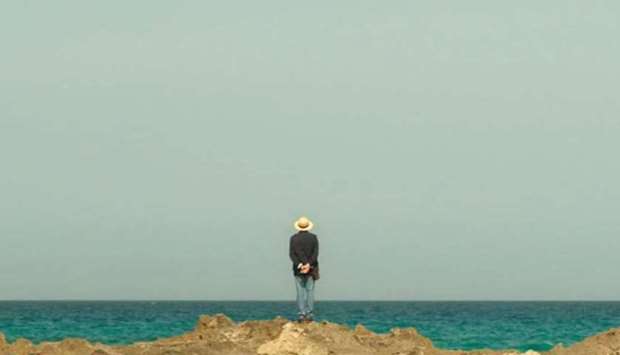Doha Film Institute (DFI) has partnered with the Arab American National Museum, Arab Film and Media Institute, and ArteEast to provide Qatar residents a chance to watch the films of renowned Palestinian filmmaker Elia Suleiman until May 30. In an email to Qatar Museums (QM) Culture Pass members, DFI said that Suleiman’s Chronicle of Disappearance (1996), Divine Intervention (2002), The Time That Remains (2008), and It Must Be Heaven (2019) can be viewed online at the comfort of their homes.
Viewing of these four films started on May 21 and will continue until May 30 from 12am to 11:59pm. The online link has been emailed to Culture Pass members yesterday. Suleiman, DFI’s artistic advisor, returned to Palestine to direct his feature debut – Chronicle of Disappearance – after living in New York for several years. The film bagged the Best First Film award at the 1996 Venice Film Festival.
In directing this film, DFI said that Nazareth-born filmmaker “used his privileged position as half-insider and half-outsider to analyse how much the Arab population of Palestine is losing its national identity.”
“Through his alter-ego E.S.’s quasi-aimless roaming, we become acquainted with his extended circle of family and friends, witnessing characters who lead a marginal existence in an occasionally surreal reality. The director/protagonist moves between the role of character and spectator, mediator and narrator, as the film itself moves between documentary and fiction, past and present. The film is lucidly structured, funny and ironic,” DFI noted.
According to DFI, Suleiman’s return to Jerusalem in 1994 saw the creation of a Film and Media Department at Birzeit University. In 2002, his film Divine Intervention won the Jury Prize at the Cannes Film Festival and the Best Foreign Film prize at the European Awards in Rome. Suleiman’s feature, ‘The Time That Remains’, was screened in competition at the 2009 Cannes Film Festival while ‘It Must Be Heaven’ was screened in competition at the 2019 Cannes Film Festival and won the Jury Special Mention and Fipresci Critics’ Award, DFI noted.
Viewing of these four films started on May 21 and will continue until May 30 from 12am to 11:59pm. The online link has been emailed to Culture Pass members yesterday. Suleiman, DFI’s artistic advisor, returned to Palestine to direct his feature debut – Chronicle of Disappearance – after living in New York for several years. The film bagged the Best First Film award at the 1996 Venice Film Festival.
In directing this film, DFI said that Nazareth-born filmmaker “used his privileged position as half-insider and half-outsider to analyse how much the Arab population of Palestine is losing its national identity.”
“Through his alter-ego E.S.’s quasi-aimless roaming, we become acquainted with his extended circle of family and friends, witnessing characters who lead a marginal existence in an occasionally surreal reality. The director/protagonist moves between the role of character and spectator, mediator and narrator, as the film itself moves between documentary and fiction, past and present. The film is lucidly structured, funny and ironic,” DFI noted.
According to DFI, Suleiman’s return to Jerusalem in 1994 saw the creation of a Film and Media Department at Birzeit University. In 2002, his film Divine Intervention won the Jury Prize at the Cannes Film Festival and the Best Foreign Film prize at the European Awards in Rome. Suleiman’s feature, ‘The Time That Remains’, was screened in competition at the 2009 Cannes Film Festival while ‘It Must Be Heaven’ was screened in competition at the 2019 Cannes Film Festival and won the Jury Special Mention and Fipresci Critics’ Award, DFI noted.
 Culture Pass members can also explore virtually an array of art works and images by Palestinian artists and photographers exhibited at various locations, including a university, museum, and gallery. An exhibition titled ‘Women of Palestine,’ which opened on International Women’s Day in collaboration with photographers in Palestine, Germany and Chile, highlights the works of six female photographers. It aims to “enable Palestinian women to show their perception of themselves; at work, at home and always under occupation.”
Culture Pass members can also explore virtually an array of art works and images by Palestinian artists and photographers exhibited at various locations, including a university, museum, and gallery. An exhibition titled ‘Women of Palestine,’ which opened on International Women’s Day in collaboration with photographers in Palestine, Germany and Chile, highlights the works of six female photographers. It aims to “enable Palestinian women to show their perception of themselves; at work, at home and always under occupation.”  The Museum of the Palestinian People is also open for virtual visits, telling “stories that encompass the rich history, vibrant arts and culture, of people who thrive even in the face of adversity.” Meanwhile, viewers can explore the Virtual Gallery at Birzeit University, taking visitors on a one-of-its-kind virtual art tour through four different exhibitions highlighting Palestinian visual art.” Besides watching films about Palestine such as ‘The Present (2020)” and “Born in Gaza 2014” on Netflix, QM noted that the Qatar National Library is also urging residents to read books about Palestine based on its librarians’ recommendations.
The Museum of the Palestinian People is also open for virtual visits, telling “stories that encompass the rich history, vibrant arts and culture, of people who thrive even in the face of adversity.” Meanwhile, viewers can explore the Virtual Gallery at Birzeit University, taking visitors on a one-of-its-kind virtual art tour through four different exhibitions highlighting Palestinian visual art.” Besides watching films about Palestine such as ‘The Present (2020)” and “Born in Gaza 2014” on Netflix, QM noted that the Qatar National Library is also urging residents to read books about Palestine based on its librarians’ recommendations. 

